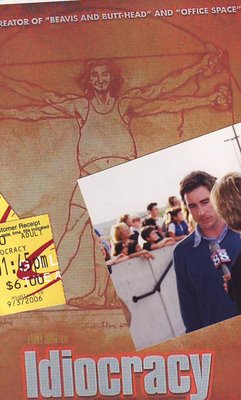So my thoughts concern mowing, but they're not about the current Lawn versus No Lawn discussions. It’s an interesting topic, but it’s not mine. I’ve been thinking about what happens to your mind when you’re engaged in something like mowing.
When I was a teenager, I occasionally pushed a mower for my parents, but my husband cut the grass once we bought a house, and my sons took over as time went on.
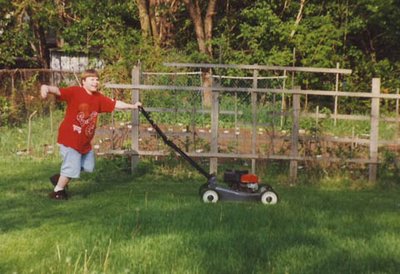
In the late nineteen-eighties, the garden grew more important, and we bought a mower that I could handle. I took over the lawn like a prairie version of May Dreams' blog photo, in denim skirts and a wide-brimmed hat.
One reason to mow: When you're mowing, your family is less likely to interrupt you with the usual demands. The dads mow in suburbia, so when a mom does it, it must be an important job. The sound isn't pleasant, but it becomes a white noise, blocking out the background. I couldn’t hear the airplanes on their way into O’Hare; I couldn’t hear the phone; I couldn’t hear car motors; I couldn’t hear any squabbling. I could think. Some of my best garden plans were developed as I went back and forth and around, mowing my yard, looking at everything from changing angles, noticing and evaluating and concentrating.
Another reason to mow: I knew what was out there and how close to get. I didn’t accidentally mow down struggling young lilies and hostas as weeds, because I was the one who planted them. I also saw things that were not ‘right’ as I passed - catching a shrub before it smothered another, or stopping a perennial before it completed a takeover move.
A possible reason to mow: A non-self-propelled mower means some load-bearing exercise. I use a mulching mower and overlap the lines, and don’t put grass in yard bags. 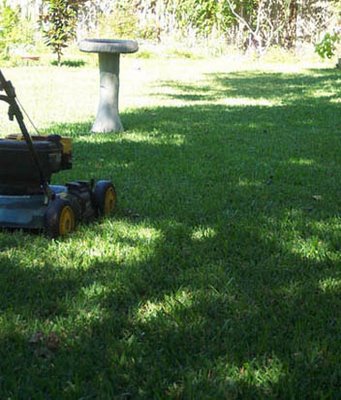 A sad reason to mow: In the months after my dad died, I could act normal most of the time, but once I started cutting the lawn, the tears wouldn't stop. Was it because mowing was something my father did, for as long as I could remember? Even in his last years, Dad would use his cane to steady himself as he climbed aboard the riding mower.
A sad reason to mow: In the months after my dad died, I could act normal most of the time, but once I started cutting the lawn, the tears wouldn't stop. Was it because mowing was something my father did, for as long as I could remember? Even in his last years, Dad would use his cane to steady himself as he climbed aboard the riding mower.
Or was it the action of mowing, the walking and the formation of patterns in the grass that released bottled-up feelings? In retrospect, now that I see labyrinths designed for walking appear everywhere, at retreat houses, on church grounds and in meditative gardens, this idea seems pretty likely.
Am I alone in feeling like this? Do you mow and think, or mow and plan, or mow and weep, or do you let someone else walk the Labyrinth of your Lawn?
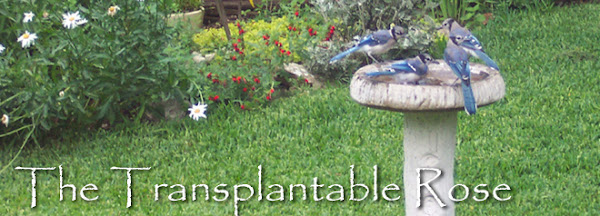






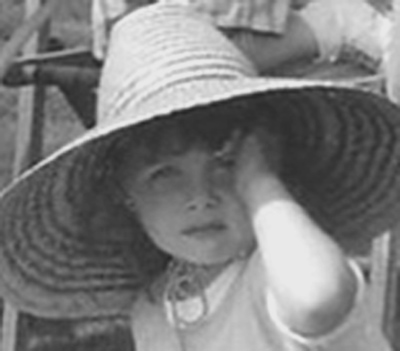



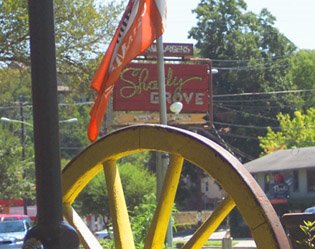
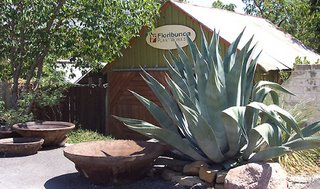 Floribunda had an enormous selection of colorful ceramic pots too. I found one that will be just right for repotting my old Jade plant.
Floribunda had an enormous selection of colorful ceramic pots too. I found one that will be just right for repotting my old Jade plant.


